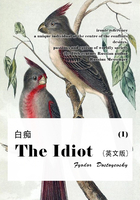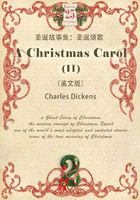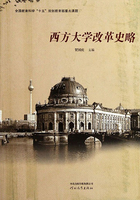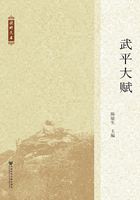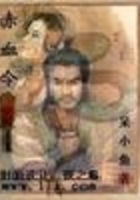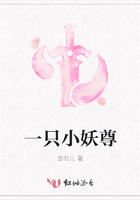Pierre sat opposite Dolokhov and Nicholas Rostov. As usual, he ate and drank much, and eagerly. But those who knew him intimately noticed that some great change had come over him that day. He was silent all through dinner and looked about, blinking and scowling, or, with fixed eyes and a look of complete absent-mindedness, kept rubbing the bridge of his nose. His face was depressed and gloomy. He seemed to see and hear nothing of what was going on around him and to be absorbed by some depressing and unsolved problem.
The unsolved problem that tormented him was caused by hints given by the princess, his cousin, at Moscow, concerning Dolokhov's intimacy with his wife, and by an anonymous letter he had received that morning, which in the mean jocular way common to anonymous letters said that he saw badly through his spectacles, but that his wife's connection with Dolokhov was a secret to no one but himself. Pierre absolutely disbelieved both the princess' hints and the letter, but he feared now to look at Dolokhov, who was sitting opposite him. Every time he chanced to meet Dolokhov's handsome insolent eyes, Pierre felt something terrible and monstrous rising in his soul and turned quickly away. Involuntarily recalling his wife's past and her relations with Dolokhov, Pierre saw clearly that what was said in the letter might be true, or might at least seem to be true had it not referred to his wife. He involuntarily remembered how Dolokhov, who had fully recovered his former position after the campaign, had returned to Petersburg and come to him. Availing himself of his friendly relations with Pierre as a boon companion, Dolokhov had come straight to his house, and Pierre had put him up and lent him money. Pierre recalled how Helene had smilingly expressed disapproval of Dolokhov's living at their house, and how cynically Dolokhov had praised his wife's beauty to him and from that time till they came to Moscow had not left them for a day.
"Yes, he is very handsome," thought Pierre, "and I know him. It would be particularly pleasant to him to dishonor my name and ridicule me, just because I have exerted myself on his behalf, befriended him, and helped him. I know and understand what a spice that would add to the pleasure of deceiving me, if it really were true. Yes, if it were true, but I do not believe it. I have no right to, and can't, believe it." He remembered the expression Dolokhov's face assumed in his moments of cruelty, as when tying the policeman to the bear and dropping them into the water, or when he challenged a man to a duel without any reason, or shot a post-boy's horse with a pistol. That expression was often on Dolokhov's face when looking at him. "Yes, he is a bully," thought Pierre, "to kill a man means nothing to him. It must seem to him that everyone is afraid of him, and that must please him. He must think that I, too, am afraid of him- and in fact I am afraid of him," he thought, and again he felt something terrible and monstrous rising in his soul. Dolokhov, Denisov, and Rostov were now sitting opposite Pierre and seemed very gay. Rostov was talking merrily to his two friends, one of whom was a dashing hussar and the other a notorious duelist and rake, and every now and then he glanced ironically at Pierre, whose preoccupied, absent-minded, and massive figure was a very noticeable one at the dinner. Rostov looked inimically at Pierre, first because Pierre appeared to his hussar eyes as a rich civilian, the husband of a beauty, and in a word- an old woman; and secondly because Pierre in his preoccupation and absent-mindedness had not recognized Rostov and had not responded to his greeting. When the Emperor's health was drunk, Pierre, lost in thought, did not rise or lift his glass.
"What are you about?" shouted Rostov, looking at him in an ecstasy of exasperation. "Don't you hear it's His Majesty the Emperor's health?"
Pierre sighed, rose submissively, emptied his glass, and, waiting till all were seated again, turned with his kindly smile to Rostov.
"Why, I didn't recognize you!" he said. But Rostov was otherwise engaged; he was shouting "Hurrah!"
"Why don't you renew the acquaintance?" said Dolokhov to Rostov.
"Confound him, he's a fool!" said Rostov.
"One should make up to the husbands of pretty women," said Denisov.
Pierre did not catch what they were saying, but knew they were talking about him. He reddened and turned away.
"Well, now to the health of handsome women!" said Dolokhov, and with a serious expression, but with a smile lurking at the corners of his mouth, he turned with his glass to Pierre.
"Here's to the health of lovely women, Peterkin- and their lovers!" he added.
Pierre, with downcast eyes, drank out of his glass without looking at Dolokhov or answering him. The footman, who was distributing leaflets with Kutuzov's cantata, laid one before Pierre as one of the principal guests. He was just going to take it when Dolokhov, leaning across, snatched it from his hand and began reading it. Pierre looked at Dolokhov and his eyes dropped, the something terrible and monstrous that had tormented him all dinnertime rose and took possession of him. He leaned his whole massive body across the table.
"How dare you take it?" he shouted.
Hearing that cry and seeing to whom it was addressed, Nesvitski and the neighbor on his right quickly turned in alarm to Bezukhov.
"Don't! Don't! What are you about?" whispered their frightened voices.
Dolokhov looked at Pierre with clear, mirthful, cruel eyes, and that smile of his which seemed to say, "Ah! This is what I like!"
"You shan't have it!" he said distinctly.
Pale, with quivering lips, Pierre snatched the copy.
"You…! you… scoundrel! I challenge you!" he ejaculated, and, pushing back his chair, he rose from the table.
At the very instant he did this and uttered those words, Pierre felt that the question of his wife's guilt which had been tormenting him the whole day was finally and indubitably answered in the affirmative. He hated her and was forever sundered from her. Despite Denisov's request that he would take no part in the matter, Rostov agreed to be Dolokhov's second, and after dinner he discussed the arrangements for the duel with Nesvitski, Bezukhov's second. Pierre went home, but Rostov with Dolokhov and Denisov stayed on at the Club till late, listening to the gypsies and other singers.
"Well then, till tomorrow at Sokolniki,"said Dolokhov, as he took leave of Rostov in the Club porch.
"And do you feel quite calm?" Rostov asked.
Dolokhov paused.
"Well, you see, I'll tell you the whole secret of dueling in two words. If you are going to fight a duel, and you make a will and write affectionate letters to your parents, and if you think you may be killed, you are a fool and are lost for certain. But go with the firm intention of killing your man as quickly and surely as possible, and then all will be right, as our bear huntsman at Kostroma used to tell me. 'Everyone fears a bear,' he says, 'but when you see one your fear's all gone, and your only thought is not to let him get away!' And that's how it is with me. A demain, mon cher."[2]
Next day, at eight in the morning, Pierre and Nesvitski drove to the Sokolniki forest and found Dolokhov, Denisov, and Rostov already there. Pierre had the air of a man preoccupied with considerations which had no connection with the matter in hand. His haggard face was yellow. He had evidently not slept that night. He looked about distractedly and screwed up his eyes as if dazzled by the sun. He was entirely absorbed by two considerations: his wife's guilt, of which after his sleepless night he had not the slightest doubt, and the guiltlessness of Dolokhov, who had no reason to preserve the honor of a man who was nothing to him…. "I should perhaps have done the same thing in his place," thought Pierre. "It's even certain that I should have done the same, then why this duel, this murder? Either I shall kill him, or he will hit me in the head, or elbow, or knee. Can't I go away from here, run away, bury myself somewhere?" passed through his mind. But just at moments when such thoughts occurred to him, he would ask in a particularly calm and absent-minded way, which inspired the respect of the onlookers, "Will it be long? Are things ready?"
When all was ready, the sabers stuck in the snow to mark the barriers, and the pistols loaded, Nesvitski went up to Pierre.
"I should not be doing my duty, Count," he said in timid tones, "and should not justify your confidence and the honor you have done me in choosing me for your second, if at this grave, this very grave, moment I did not tell you the whole truth. I think there is no sufficient ground for this affair, or for blood to be shed over it…. You were not right, not quite in the right, you were impetuous…"
"Oh yes, it is horribly stupid," said Pierre.
"Then allow me to express your regrets, and I am sure your opponent will accept them," said Nesvitski (who like the others concerned in the affair, and like everyone in similar cases, did not yet believe that the affair had come to an actual duel). "You know, Count, it is much more honorable to admit one's mistake than to let matters become irreparable. There was no insult on either side. Allow me to convey…."
"No! What is there to talk about?" said Pierre. "It's all the same…. Is everything ready?" he added. "Only tell me where to go and where to shoot," he said with an unnaturally gentle smile.
He took the pistol in his hand and began asking about the working of the trigger, as he had not before held a pistol in his hand- a fact that he did not to confess.
"Oh yes, like that, I know, I only forgot," said he.
"No apologies, none whatever," said Dolokhov to Denisov (who on his side had been attempting a reconciliation), and he also went up to the appointed place.
The spot chosen for the duel was some eighty paces from the road, where the sleighs had been left, in a small clearing in the pine forest covered with melting snow, the frost having begun to break up during the last few days. The antagonists stood forty paces apart at the farther edge of the clearing. The seconds, measuring the paces, left tracks in the deep wet snow between the place where they had been standing and Nesvitski's and Dolokhov's sabers, which were stuck intothe ground ten paces apart to mark the barrier. It was thawing and misty; at forty paces' distance nothing could be seen. For three minutes all had been ready, but they still delayed and all were silent.

